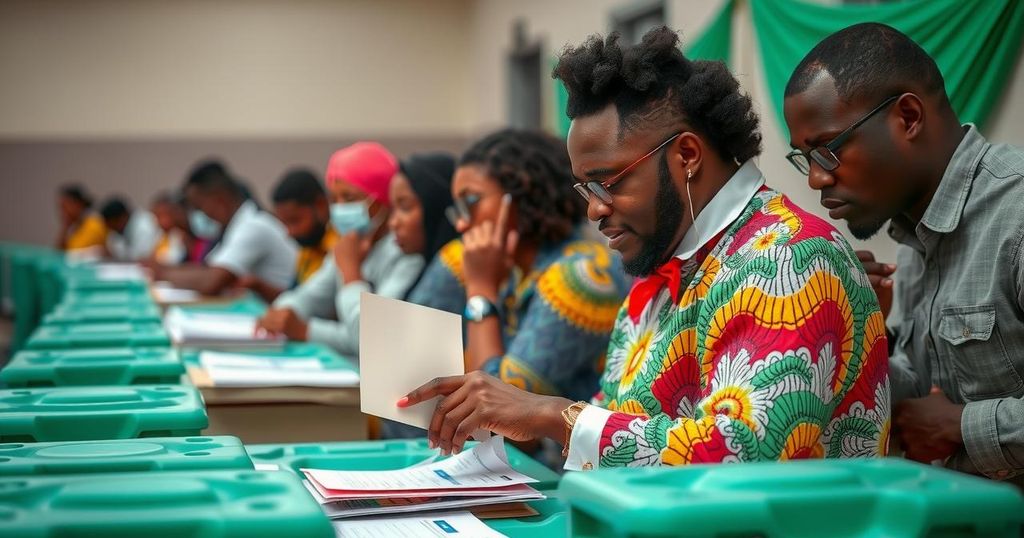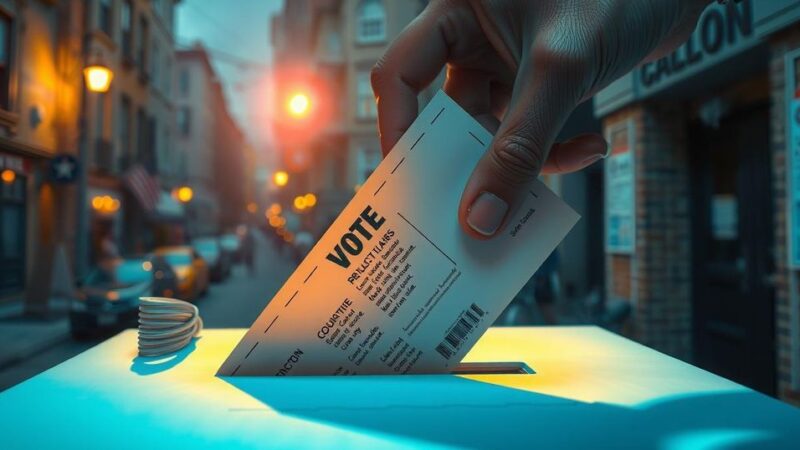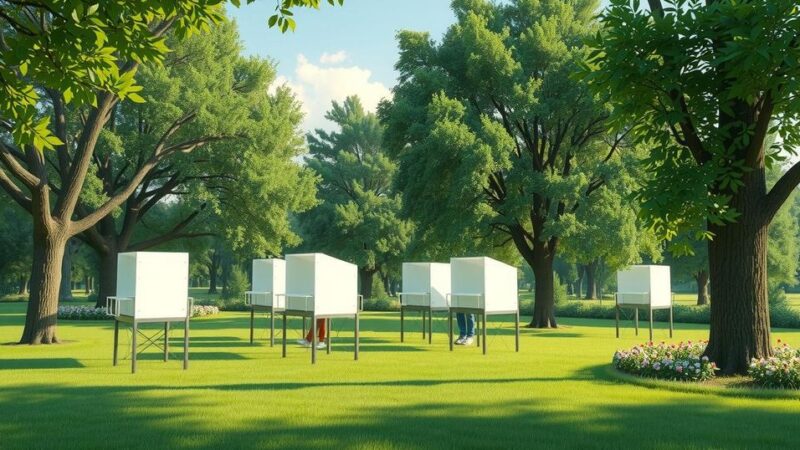Ghana conducted presidential and parliamentary elections amid hopes for economic recovery after a severe financial crisis. Vice President Mahamudu Bawumia and former President John Dramani Mahama are the primary contenders. Voting was largely peaceful, although isolated violence occurred. Results are expected soon, with approximately 18.7 million registered voters.
Ghana held its presidential and parliamentary elections on Saturday, aiming for economic recovery following a significant financial crisis that resulted in a major debt default. With President Nana Akufo-Addo stepping down after two constitutional terms, the race features twelve candidates, primarily focused on Vice President Mahamudu Bawumia of the New Patriotic Party and former President John Dramani Mahama of the National Democratic Congress. Mahama, who presided from 2012 to 2016, contended against Bawumia by claiming continuity in failed policies, while Bawumia expressed confidence in the government’s recovery progress and voter support. Although voting commenced peacefully across most locations, there were isolated incidents of violence. Results are expected to be revealed within the next few days, with over 99% of polling stations reportedly opening on time. 18.7 million of Ghana’s 34 million individuals were registered to vote.
Ghana’s political landscape is at a critical juncture as it navigates its way out of the worst economic crisis in recent history, characterized by significant debt and an IMF intervention. The upcoming transition, prompted by the constitutional term limit of President Nana Akufo-Addo, is dominated by two principal candidates with contrasting visions for the country’s recovery. The economic outlook, as well as the social fabric of the nation, is being intensely scrutinized by both local and international observers during this pivotal election.
In summary, Ghana’s recent presidential and parliamentary elections represent a significant step forward in the nation’s attempt to overcome its economic challenges. The rivalry between Vice President Bawumia and former President Mahama unveils deep societal divisions and varied responses to the country’s current economic policies. As results are anticipated soon, the outcome will likely have profound implications for Ghana’s future trajectory and the well-being of its citizens.
Original Source: www.voanews.com






